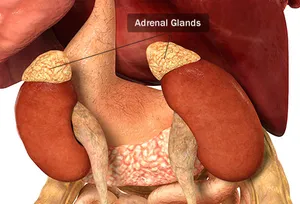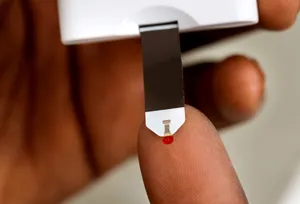How to Stop Feeling Anxious Right Now
By Locke Hughes

FROM THE WEBMD ARCHIVES
While it’s normal to get nervous about an important event or life change, about 40 million Americans live with an anxiety disorder, which is more than the occasional worry or fear. Anxiety disorders can range from a generalized anxiety disorder (GAD), which is intense worrying that you can’t control, to panic disorder -- sudden episodes of fear, along with heart palpitations, trembling, shaking, or sweating.
For those with an anxiety disorder, it’s important to look into strategies that can help manage or reduce anxiety in the long term, like talk therapy or medication. But everyone can benefit from other ways to reduce stress and anxiety with lifestyle changes such as eating a well-balanced diet, limiting alcohol and caffeine, and taking time for yourself.
Plus, there are steps you can take the moment when anxiety starts to take hold. Try these 10 expert-backed suggestions to relax your mind and help you regain control of your thoughts.
1. Stay in your time zone.
Anxiety is a future-oriented state of mind. So instead of worrying about what’s going to happen, “reel yourself back to the present,” says Tamar Chansky, Ph.D., a psychologist and author of Freeing Yourself from Anxiety. Ask yourself: What’s happening right now? Am I safe? Is there something I need to do right now? If not, make an “appointment” to check in with yourself later in the day to revisit your worries so those distant scenarios don’t throw you off track, she says.
2. Relabel what’s happening.
SLIDESHOW
Heart-Pounding, Stomach-Knotting: Stress and You

1/13
The Stress Response
Your muscles tense, your heart races, and your breath comes faster -- we all know what stress feels like. The “fight or flight” response is behind it: Your hormones get your body ready to either take on a threat or run from it. If this happens too often -- say, every day during your commute -- it’s called “chronic stress,” and it can take a toll on different parts of your body and your overall health.

2/13
How It Happens
Hormones are chemicals that tell certain parts of your body to spring into action. Your adrenal glands make the ones that help your body prepare to fight or run from danger (adrenaline, noradrenaline, cortisol). When those stay at a high level for a long time, they can weaken your bones and your immune system, mess with your sleep, and make you lose muscle.

3/13
Stomach Pain
”Butterflies” are one thing, but if you’re really stressed, you may have nausea and your tummy might hurt. This is natural, because your body may slow or stop digestion during the fight-or-flight response to help you focus.

4/13
Bathroom Trouble
If stress closes down your digestive system too often, it can cause diarrhea or constipation and affect your body’s ability to take in nutrients. There also seems to be a link between stress and irritable bowel syndrome, which can cause belly pain and cramping, as well as constipation and diarrhea.

5/13
Heartburn and Acid Reflux
People who are under a lot of stress might eat more, or eat more unhealthy food. They also may drink more alcohol or smoke more often. All this can lead to heartburn and acid reflux (when stomach acid comes up into your food pipe). If it’s not treated, it can cause ulcers (open sores) and scar tissue.

6/13
Headaches
When you’re stressed, the muscles in your head, neck, and shoulders tighten up. This can lead to tension headaches and migraines. Relaxation techniques may help lower your stress as well as the number of these headaches.

7/13
Menstruation
Stress can make a woman’s cycle irregular and cause missed or painful periods. It also may make premenstrual syndrome (PMS) worse -- the mood swings and cramping some women get before their periods.

8/13
Sexual Desire
Stress can make men and women less interested in sex, but chronic stress can cause real trouble for men in the bedroom. It can lead to erectile dysfunction and affect sperm -- how many a man makes and how well they’re made.

9/13
Breathing Issues
When you’re stressed, you may breathe harder and faster, which can be a problem if you have a condition like asthma or a lung disease, like emphysema, which makes it difficult to get enough oxygen into your lungs.

10/13
Heart Problems
The hormones that get into your system when you’re stressed can be bad for your heart if they stay at high levels. They can raise your blood pressure, which can lead to a heart attack or stroke. They also may cause inflammation of the blood vessels that supply blood to your heart muscle, and that also can lead to a heart attack.

11/13
Diabetes
When you’re stressed, your liver releases glucose -- a kind of sugar -- into your blood to fuel your fight-or-flight response. This can lead to diabetes if you’re obese or at risk for it in other ways. But managing your stress can help control your blood sugar.

12/13
Things You Can Do
Just 30 minutes a day of moderate exercise, such as a brisk walk or a swim, can help boost your mood and limit the effects of stress on your body. And if you do it outdoors in the sunshine, you may feel even better.

13/13
Positive Attitude
Stress can be a good thing in some situations -- for example, it can help you meet a tight deadline or focus better on a test or presentation. If you look at it in that light -- as friend, not foe -- your body may deal with it in a healthier way. You also may lower your stress level if you think of others more often. In one study, people who did nice things for friends and family during stressful times had fewer health issues than those who didn’t.
Reviewed by Smitha Bhandari on 10/18/2018
Panic attacks can often make you feel like you’re dying or having a heart attack. Remind yourself: “I’m having a panic attack, but it’s harmless, it’s temporary, and there’s nothing I need to do,” Chansky says. Plus, keep in mind it really is the opposite of a sign of impending death -- your body is activating its fight-or-flight response, the system that’s going to keep you alive, she says.
3. Fact-check your thoughts.
People with anxiety often fixate on worst-case scenarios, Chansky says. To combat these worries, think about how realistic they are. Say you’re nervous about a big presentation at work. Rather than think, “I’m going to bomb,” for example, say, “I’m nervous, but I’m prepared. Some things will go well, and some may not,” she suggests. Getting into a pattern of rethinking your fears helps train your brain to come up with a rational way to deal with your anxious thoughts.
4. Breathe in and out.
Deep breathing helps you calm down. While you may have heard about specific breathing exercises, you don’t need to worry about counting out a certain number of breaths, Chansky says. Instead just focus on evenly inhaling and exhaling. This will help slow down and re-center your mind, she says.
5. Follow the 3-3-3 rule.
Look around you and name three things you see. Then, name three sounds you hear. Finally, move three parts of your body -- your ankle, fingers, or arm. Whenever you feel your brain going 100 miles per hour, this mental trick can help center your mind, bringing you back to the present moment, Chansky says.
6. Just do something.
Stand up, take a walk, throw away a piece of trash from your desk -- any action that interrupts your train of thought helps you regain a sense of control, Chansky suggests.
7. Stand up straight.

WebMD Countdown: 3 Ways to Cut Stress

Play
Current Time
0:00
/
1:34
Mute
Fullscreen
Progress: 0%
3 Ways to Cut Stress
3 easy things you can do to help cut out stress.
ABOUT
“When we are anxious, we protect our upper body -- where our heart and lungs are located -- by hunching over,” Chansky says. For an immediate physical antidote to this natural reaction, pull your shoulders back, stand or sit with your feet apart, and open your chest. This helps your body start to sense that it’s back in control, she says.
8. Stay away from sugar.
It may be tempting to reach for something sweet when you’re stressed, but that chocolate bar can do more harm than good, as research shows that eating too much sugar can worsen anxious feelings. Instead of reaching into the candy bowl, drink a glass of water or eat protein, Chansky says, which will provide a slow energy your body can use to recover.
9. Ask for a second opinion.
Call or text a friend or family member and run through your worries with them, Chansky says. “Saying them aloud to someone else can help you see them clearly for what they are.” It can also help to write your fears on paper.
10. Watch a funny video.
This final tactic may be the easiest one yet: Cue up clips of your favorite comedian or funny TV show. Laughing is a good prescription for an anxious mind, Chansky says. Research shows that laughter has lots of benefits for our mental health and well-being; one study found that humor could help lower anxiety as much as (or even more than) exercise can.
WebMD Feature Reviewed by Arefa Cassoobhoy, MD, MPH on March 02, 2017





Comments